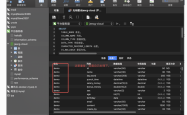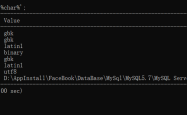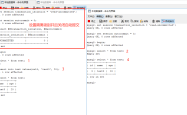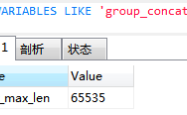MySQL如何使用使用Xtrabackup进行备份和恢复
吾爱主题
阅读:217
2024-04-02 08:03:24
评论:0
1 备份
进行备份前需要先创建备份用户,直接使用 root 用户进行备份也行,但是这样不太规范。
?| 1 2 | create user backup@ 'localhost' identified by '123456' ; grant reload,process,lock tables,replication client on *.* to backup@localhost; |
1.1 全备
备份整个库,使用的是备份用户,备份文件存放地址为 /backup/
?| 1 | innobackupex --defaults-file=/etc/my.cnf --user=backup --password=123456 /backup/ |
1.2 增备
指定为增量备分,使用的是备份用户,增量的基础为上一次的全备,已经使用 --incremental-basedir 进行指定了,备份后存放的文件为 /backup/
?| 1 | innobackupex --defaults-file=/etc/my.cnf --user=backup --password=123456 --incremental --incremental-basedir=/backup/2021-06-01_14-44-54 /backup/ |
2 备份恢复
2.1 准备数据
回滚未提交的事务及同步已经提交的事务至数据文件使数据文件处于一致性状态
?| 1 | innobackupex --apply-log --redo-only /backup/2021-06-01_14-44-54/ |
2.2 进行恢复
在恢复前,需要确保 mysql 的数据目录为已经删除了。
?| 1 | innobackupex --copy-back --datadir=/usr/local/mysql/data /backup/2021-06-01_14-44-54/ |
恢复后,需要对 mysql 的data 目录进行重新赋权:
?| 1 | chown -r mysql:mysql data/ |
到这恢复就完成了。
3 目录结构

4 备份脚本
4.1 脚本
backup.sh
?| 1 2 3 4 5 6 7 8 9 10 11 12 13 14 15 16 17 18 19 20 21 22 23 24 25 26 27 28 29 30 31 32 33 34 35 36 37 38 39 40 41 42 43 44 45 46 47 48 49 50 51 52 53 54 55 56 57 58 59 60 61 62 63 64 65 66 67 68 69 70 71 72 73 74 75 76 77 78 79 80 81 82 83 84 85 86 87 88 89 90 91 92 93 94 95 96 97 98 99 100 101 102 103 104 105 106 107 108 109 110 111 112 113 114 115 116 117 118 119 120 121 122 123 124 125 126 127 128 129 130 131 132 133 134 135 136 137 138 139 140 141 142 143 144 145 146 147 148 149 150 151 152 153 154 155 156 157 158 159 160 161 162 163 164 165 166 167 168 169 170 171 172 173 174 175 176 177 178 179 180 181 182 183 184 185 186 187 188 189 190 191 192 193 194 195 196 197 198 199 200 201 202 203 204 205 206 207 | #!/bin/bash # 获得程序路径名 program_dir=`dirname $0`/.. # 读取配置文件中的所有变量值, 设置为全局变量 # 配置文件 conf_file= "$program_dir/conf/backup.conf" # mysql 用户 user =`sed '/^user=/!d;s/.*=//' $conf_file` # mysql 密码 password =`sed '/^password=/!d;s/.*=//' $conf_file` # mysql 备份目录 backup_dir=`sed '/^backup_dir=/!d;s/.*=//' $conf_file` # mysql 备份压缩打包目录 gzip_dir=`sed '/^gzip_dir=/!d;s/.*=//' $conf_file` # percona-xtrabackup命令xtrabackup路径 xtrabackup_bin=`sed '/^xtrabackup_bin=/!d;s/.*=//' $conf_file` # mysql 全备前缀标识 full_backup_prefix=`sed '/^full_backup_prefix=/!d;s/.*=//' $conf_file` # mysql 增量备前缀标识 increment_prefix=`sed '/^increment_prefix=/!d;s/.*=//' $conf_file` # 备份错误日志文件 error_log=$program_dir/var/`sed '/^error_log=/!d;s/.*=//' $conf_file` # 备份索引文件 index_file=$program_dir/var/`sed '/^index_file=/!d;s/.*=//' $conf_file` # 备份日期 backup_date=` date +%f` # 备份时间 backup_time=` date +%h-%m-%s` # 备份时的周几 backup_week_day=` date +%u` # 创建相关目录 log_dir=$program_dir/log/backup var_dir=$program_dir/var mkdir -p $backup_dir mkdir -p $log_dir mkdir -p $var_dir mkdir -p $gzip_dir # 全量备份 function full_backup() { backup_folder=${full_backup_prefix}_${backup_date}_${backup_time}_${backup_week_day} mkdir -p $backup_dir/$backup_folder $xtrabackup_bin \ --user=$user \ --password=$password \ --backup \ --target-dir=$backup_dir/$backup_folder > $log_dir/${backup_folder}.log 2>&1 return $? } # 增量备份 function increment_backup() { backup_folder=${increment_prefix}_${backup_date}_${backup_time}_${backup_week_day} incr_base_folder=`sed -n '$p' $index_file | \ awk -f '[, {}]*' '{print $3}' | \ awk -f ':' '{print $2}' ` mkdir -p $backup_dir/$backup_folder $xtrabackup_bin \ --user=$user \ --password=$password \ --backup \ --target-dir=$backup_dir/$backup_folder \ --incremental-basedir=$backup_dir/$incr_base_folder > $log_dir/${backup_folder}.log 2>&1 return $? } # 删除之前的备份(一般在全备完成后使用) function delete_before_backup() { cat $index_file | awk -f '[, {}]*' '{print $3}' | \ awk -v backup_dir=$backup_dir -f ':' '{if($2!=""){printf("rm -rf %s/%s\n", backup_dir, $2)}}' | \ /bin/bash cat $index_file | awk -f '[, {}]*' '{print $3}' | \ awk -v gzip_dir=$gzip_dir -f ':' '{if($2!=""){printf("rm -rf %s/%s\n", gzip_dir, $2)}}' | \ /bin/bash cat $index_file | awk -f '[, {}]*' '{print $3}' | \ awk -v log_dir=$log_dir -f ':' '{if($2!=""){printf("rm -rf %s/%s.log\n", log_dir, $2)}}' | \ /bin/bash } # 备份索引文件 function backup_index_file() { cp $index_file ${index_file}_$( date -d "1 day ago" +%f) } # 备份索引文件 function send_index_file_to_remote() { # ./expect_scp ip地址 账号 密码 ${index_file} 目标服务器存放的文件夹 端口号 echo 'send index file ok' } # 添加索引, 索引记录了当前最新的备份 function append_index_to_file() { echo "{week_day:$backup_week_day, \ dir:${1}_${backup_date}_${backup_time}_${backup_week_day}, \ type:${1}, \ date:${backup_date}}" >> $index_file } # 记录错误消息到文件 function logging_backup_err() { echo "{week_day:$backup_week_day, \ dir:${1}_${backup_date}_${backup_time}_${backup_week_day}, \ type:${1}, \ date:${backup_date}}" >> $error_log } # 清空索引 function purge_index_from_file() { > $index_file } # 清空错误日志信息 function purge_err_log() { > $error_log } # 打包备份 function tar_backup_file() { cd $backup_dir tar -jcf ${gzip_dir}/${1}_${backup_date}_${backup_time}_${backup_week_day}.tar.bz2 \ ${1}_${backup_date}_${backup_time}_${backup_week_day} cd - > /dev/ null rm -rf ${backup_dir}/${1}_${backup_date}_${backup_time}_${backup_week_day} } # 发送备份到远程 function send_backup_to_remote() { # ./expect_scp ip地址 账号 密码 ${gzip_dir}/${1}_${backup_date}_${backup_time}_${backup_week_day}.tar.bz2 目标服务器存放的文件夹 端口号 echo "send $1 remote ok" } # 判断是应该全备还是增量备份 # 0: full , 1:incr function get_backup_type() { backup_type=0 if [ 1 -eq ` date +%h` ]; then backup_type=0 else backup_type=1 fi touch $index_file if [ ! -n "`cat $index_file`" ]; then backup_type=0 fi return $backup_type } # 测试配置文件正确性 function test_conf_file() { # 判断每个变量是否在配置文件中有配置,没有则退出程序 if [ ! -n "$user" ]; then echo 'fail: configure file user not set' ; exit 2; fi if [ ! -n "$password" ]; then echo 'fail: configure file password not set' ; exit 2; fi if [ ! -n "$backup_dir" ]; then echo 'fail: configure file backup_dir not set' ; exit 2; fi if [ ! -n "$gzip_dir" ]; then echo 'fail: configure file backup_dir not set' ; exit 2; fi if [ ! -n "$full_backup_prefix" ]; then echo 'fail: configure file full_backup_prefix not set' ; exit 2; fi if [ ! -n "$increment_prefix" ]; then echo 'fail: configure file increment_prefix not set' ; exit 2; fi if [ ! -n "$error_log" ]; then echo 'fail: configure file error_log not set' ; exit 2; fi if [ ! -n "$index_file" ]; then echo 'fail: configure file index_file not set' ; exit 2; fi } # 执行 function main() { # 检测配置文件值 test_conf_file # 判断是执行全备还是增量备份 get_backup_type backup_type=$? case $backup_type in 0 ) # 全量备份 full_backup backup_ok=$? if [ 0 -eq "$backup_ok" ]; then # 全备成功 # 打包最新备份 tar_backup_file $full_backup_prefix # # 将tar备份发送到远程 send_backup_to_remote $full_backup_prefix # 备份索引文件 backup_index_file # 清除之前的备份 delete_before_backup # 清除索引文件 purge_index_from_file # 添加索引, 索引记录了当前最新的备份 append_index_to_file $full_backup_prefix # 发送索引文件到远程 send_index_file_to_remote else # 全备失败 # 删除备份目录 rm -rf ${backup_dir}/${full_backup_prefix}_${backup_date}_${backup_time}_${backup_week_day} # 记录错误日志 logging_backup_err $full_backup_prefix fi ;; 1 ) # 增量备份 increment_backup backup_ok=$? if [ "$backup_ok" -eq 0 ]; then # 增量备份成功 # 打包最新备份 tar_backup_file $increment_prefix # # 将tar备份发送到远程 send_backup_to_remote $increment_prefix # 添加索引, 索引记录了当前最新的备份 append_index_to_file $increment_prefix # # 发送索引文件到远程 send_index_file_to_remote else # 增量备份失败 # 删除备份目录 rm -rf ${backup_dir}/${increment_prefix}_${backup_date}_${backup_time}_${backup_week_day} # 记录错误日志 logging_backup_err $increment_prefix fi ;; esac } main |
4.2 配置文件
backup.conf
?| 1 2 3 4 5 6 7 8 9 10 11 12 13 14 15 16 17 18 19 20 21 22 | # mysql 用户名 user =backup # mysql 密码 password =123456 # 备份路径 backup_dir=/data/backup # 备份压缩打包目录 gzip_dir=/data/backups/backups_zip # innobackupex 命令路径 xtrabackup_bin=/opt/xtrabackup/bin/xtrabackup # 全量备信息名称 前缀 full_backup_prefix= full # 增量备信息名称 前缀 increment_prefix=incr # 错误日志文件(根据此文件知道备份是否成功) # format: # {week_day:1,dir: full /incr_2015-12-29_00-00-00_7,type: full /incr, date :2015-12-30} error_log=mysql_increment_hot_backup.err # 索引文件 # format: # {week_day:1,dir: full /incr_2015-12-29_00-00-00_7,type: full /incr, date :2015-12-30} index_file=mysql_increment_hot_backup. index |
5 恢复脚本
5.1 脚本
restore.sh
?| 1 2 3 4 5 6 7 8 9 10 11 12 13 14 15 16 17 18 19 20 21 22 23 24 25 26 27 28 29 30 31 32 33 34 35 36 37 38 39 40 41 42 43 44 45 46 47 48 49 50 51 52 53 54 55 56 57 58 59 60 61 62 63 64 65 66 67 68 69 70 71 72 73 74 75 76 77 78 79 80 81 82 83 84 85 86 87 88 89 90 91 92 93 94 95 96 97 98 99 100 101 102 103 104 105 106 107 108 109 110 111 112 113 114 115 116 117 | #!/bin/bash # 获得程序路径名 program_dir=`dirname $0`/.. # 读取配置文件中的所有变量值, 设置为全局变量 # 配置文件 conf_file= "$program_dir/conf/restore.conf" # mysql 数据文件夹 data_dir=`sed '/^data_dir=/!d;s/.*=//' $conf_file` # 备份索引文件路径 backup_index_file=`sed '/^backup_index_file=/!d;s/.*=//' $conf_file` # percona-xtrabackup命令xtrabackup路径 xtrabackup_bin=`sed '/^xtrabackup_bin=/!d;s/.*=//' $conf_file` # 备份文件目录 backup_restore_dir=`sed '/^backup_restore_dir=/!d;s/.*=//' $conf_file` # 检查配置文件正确性 function exam_conf_file() { # 判断每个变量是否在配置文件中有配置,没有则退出程序 if [ ! -n "$data_dir" ]; then echo 'fail: configure file data_dir not set' ; exit 2; fi if [ ! -n "$backup_index_file" ]; then echo 'fail: configure file backup_index_file not set' ; exit 2; fi if [ ! -n "$xtrabackup_bin" ]; then echo 'fail: configure file xtrabackup_bin not set' ; exit 2; fi if [ ! -n "$backup_restore_dir" ]; then echo 'fail: configure file backup_restore_dir not set' ; exit 2; fi } # 检查备份文件是否是压缩格式 function exam_backup_restore_file(){ file_backup_restore_name_arr=`ls $backup_restore_dir` for file_name in $file_backup_restore_name_arr;do if [ "${file_name##*.}" x = "bz2" x ]; then tar -jxf $backup_restore_dir/$file_name -c $backup_restore_dir rm -rf $backup_restore_dir/$file_name fi done } # 检查 mysql 是否停止 function exam_mysql_is_stop(){ if [ 0 -eq `ps -ef | grep mysql | grep -v grep | wc -l` ]; then echo "mysql 服务已停止" else /etc/init.d/mysqld stop echo "正在停止 mysql 服务" sleep 3 echo "已停止 mysql 服务" fi } # 检查 mysql data 文件是否删除 function exam_data_is_del(){ if [ -d $data_dir ]; then echo "正在删除 mysql 的data文件" rm -rf $data_dir else echo "mysql 的数据文件已删除 " fi } # 读取备份索引文件 function read_backup_index() { cat $backup_index_file | awk '{print $2}' | awk -f: '{print $2}' | awk '{sub(/.$/,"")}1' } # 准备全备文件 function ready_full(){ full_file_name=`echo ${1} | awk '{print $1}' ` $xtrabackup_bin/innobackupex \ --apply-log \ --redo-only \ $backup_restore_dir/$full_file_name echo "全备文件已准备好" } # 准备增备文件 function ready_incr(){ backup_index=$(read_backup_index) full_file_name=`echo $backup_index | awk '{print $1}' ` for file_name in $backup_index;do if [ 1 -eq `echo "$file_name" | grep incr | wc -l` ]; then $xtrabackup_bin/innobackupex \ --apply-log \ --redo-only \ $backup_restore_dir/$full_file_name \ --incremental-dir=$backup_restore_dir/$file_name fi done echo "增备文件已准备好" } # 执行备份恢复 function exec_backup_restore(){ echo "开始进行备份恢复" full_file_name=`echo ${1} | awk '{print $1}' ` $xtrabackup_bin/innobackupex \ --copy-back \ --datadir=$data_dir \ $backup_restore_dir/$full_file_name } # 执行 function main() { # 检查配置文件正确性 exam_conf_file # 检查备份文件是否是压缩格式 exam_backup_restore_file # 检查 mysql 是否停止 exam_mysql_is_stop # 检查 mysql data 文件是否删除 exam_data_is_del # 读取索引文件 backup_index=$(read_backup_index) # 准备全备文件 ready_full $backup_index # 准备增备文件 ready_incr # 执行备份恢复 exec_backup_restore $backup_index # 对数据文件进行赋权 echo "重新对数据目录赋权" chown -r mysql:mysql $data_dir echo "正在启动mysql" /etc/init.d/mysqld start echo "备份恢复成功" } main |
5.2 配置文件
restore.conf
?| 1 2 3 4 5 6 7 8 | # mysql 数据文件夹 data_dir=/opt/mysql/data #备份索引文件路径 backup_index_file=/opt/xtrabackup/backup/var/mysql_increment_hot_backup. index #xtrabackup bin 的目录 xtrabackup_bin=/opt/xtrabackup/bin # 备份文件目录 backup_restore_dir=/data/backups/backups_zip |
以上就是mysql如何使用使用xtrabackup进行备份和恢复的详细内容,更多关于mysql 用xtrabackup备份和恢复的资料请关注服务器之家其它相关文章!
原文链接:https://www.cnblogs.com/FrostBoy/p/14885065.html
声明
1.本站遵循行业规范,任何转载的稿件都会明确标注作者和来源;2.本站的原创文章,请转载时务必注明文章作者和来源,不尊重原创的行为我们将追究责任;3.作者投稿可能会经我们编辑修改或补充。










